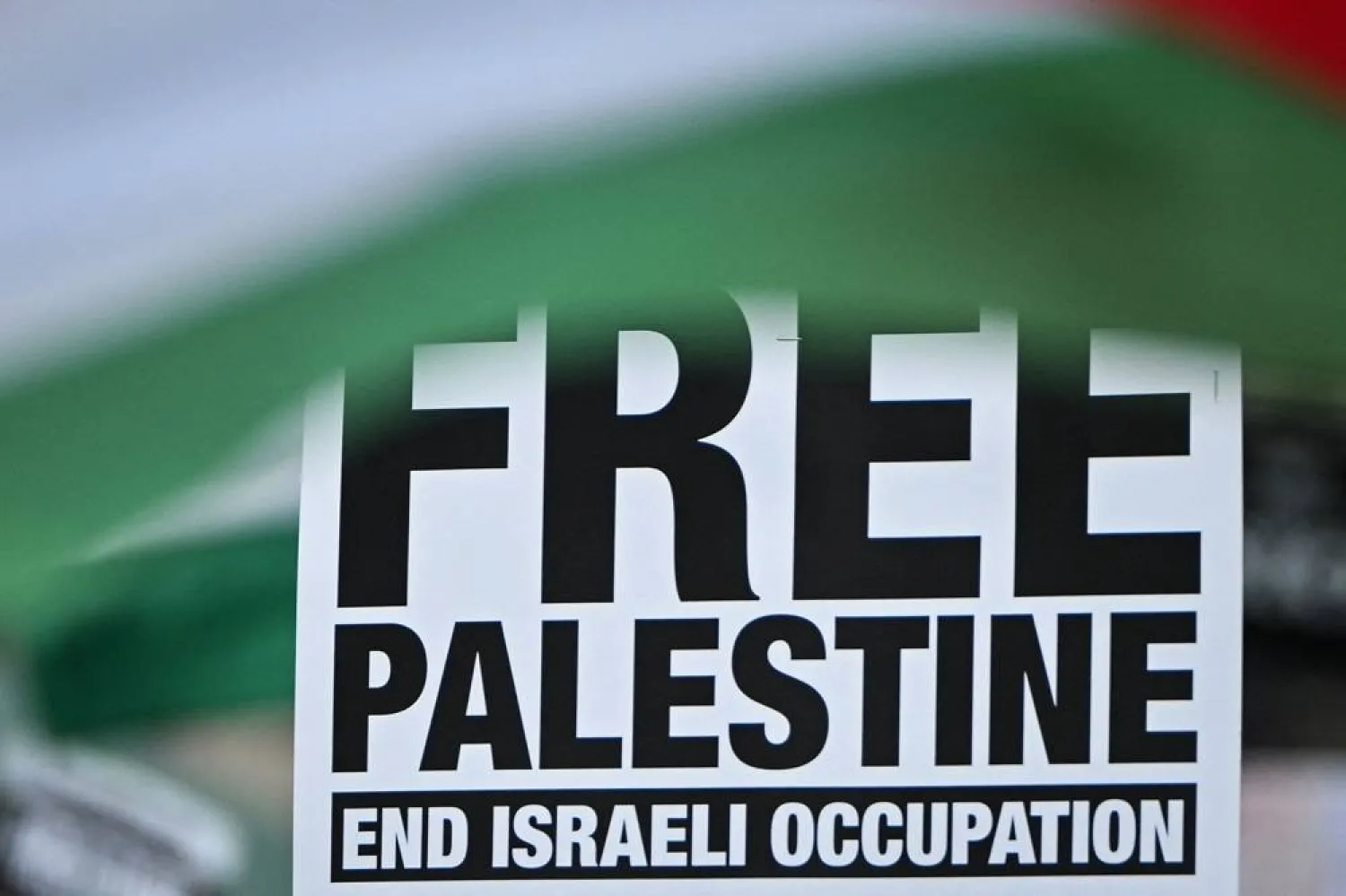Mohammed Rashid once worked as a forklift driver in a Chicago warehouse.
Fast forward to these grim times and Rashid, along with his Palestine football teammates, carry a heavier weight knowing success on the field offers a little respite from the war raging in Gaza.
Amid the horrifying backdrop of the Israel-Hamas war, now in its eighth month, an inspired Palestine has produced a stirring run to reach the third round in Asia of World Cup qualifying for the first time.
“What doesn’t kill you makes you stronger,” Rashid said in Perth on Monday, a day before Palestine plays Australia. “We’re here for one cause and one goal.
“Whoever is on the team has to perform. There is no other way to it.”
Palestine, 93rd in the world rankings, has never come close to reaching the World Cup via the Asian Football Confederation’s qualifying route. With the 2026 tournament expanding to 48 teams, and Asia’s automatic qualification allocation doubling to eight, Palestine has a legitimate chance to make history.
Palestine and Australia meet at HBF Park on Tuesday to complete the Asian second round. Both teams are safely through to September’s next stage.
“Of course, it’s (World Cup) a big dream,” Rashid said. “Everything is possible. There’s a lot of hard work that needs to be done before we get there.”
Palestine team officials discourage politically charged questions at press conferences. But the players are willing to publicly engage in conversations about the devastation in Gaza. More than 36,700 Palestinians have been killed, according to the Gaza Health Ministry, which does not differentiate between civilians and combatants in its counts. Hamas and other militants killed some 1,200 people in the Oct. 7 attack on Israel, mostly civilians, and took around 250 people hostage.
“It (playing) gives the chance to raise the name of Palestine to the whole world, and the World Cup is the biggest platform for this,” said Rashid, a defensive midfielder. “What’s happening right now is affecting all of us. You can’t help but be affected by it.”
Rashid was on a college soccer scholarship in Illinois from 2013-17 before signing with the Palestinian Premier League one year later.
While most United Nations members do not recognize Palestine as a country, including the US and Australia, the Palestine Football Association became a full member of FIFA in 1998.
The team affectionately known as Al Fida’i (The Warriors) had only moderate success at the regional level until recently. Preaching a disciplined style of play, mirroring the resolve of its players, Palestine has conceded only one goal in five matches in this qualifying cycle.
It’s been a remarkable effort given Palestine has not played on home soil since 2019, having been forced to host matches in Kuwait and Qatar. Players have had to flee for safety and seek overseas leagues.
“This is the hardest part (not playing at home),” said Rashid, who plays club soccer for Bali United in Indonesia. “The last time we played Saudi Arabia at home, it was a full house. People were climbing trees to watch the game.
“We’ve had 28 (straight) games away, which is rough. But we’re always playing for our people.”
While the players try to avoid making inflammatory remarks, the team’s mere existence is seen as a political statement with controversy inevitably not far away. PFA president Jibril Rajoub was denied a visa into Australia. Rajoub is also a politician and chair of the Palestine Olympic Committee.
“These decisions are made at arm’s length by the bodies, by the immigration department,” Australia Prime Minister Anthony Albanese said.
Rashid and his teammates are hoping to put that setback aside and continue to provide a rallying cry for Palestinians.
“When it comes to (soccer), you try to get your head out of it (the controversy),” he said. “This (Palestine matches) is the only thing they (Palestinians) are watching. The only thing giving them hope.
“For us this is a big motivation.”









